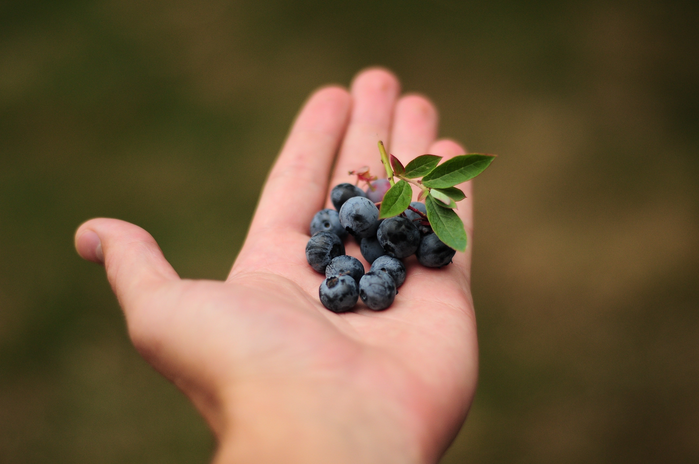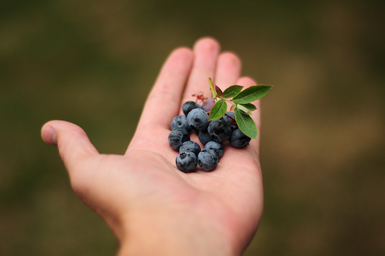Name: Vivian Ngo
Age: 19
Year of Study: Second year
Program: Statistics Specialist
University is an exciting time that brings many new and fun experiences, like meeting awesome people and finally having complete freedom. But for many, it is also the first time being independent and self sufficient. This independence can present many challenges, with one of the major ones being learning how to cook.
But for Vivian, cooking is a hobby that is a major part of her life. She’s here to share her advice and wisdom with those of us who may not be as savvy when it comes to cooking. By the end of this interview, you will have the skills to take on the kitchen, and new tips and tricks to try when it comes to cooking healthy food on a university budget.
Her Campus: Where did your love and passion for cooking come from? How long has cooking been an important part of your life?
Vivian Ngo: My passion for cooking came from my grandma who could make a delicious meal out of any food scraps. I learned to devein shrimp and help prepare veggies at around the age of nine and I’ve been cooking ever since.
HC: What kind of cuisine would you consider the dishes you make? Is there a source of inspiration for this type of food?
VN: The type of food that I make is usually very lazy-people-friendly. I like to make meals that are nutritious but also easy to put together, so I don’t make anything really fancy. My favorite thing to make is soup with ground beef, spinach, potatoes, carrots, eggs, and any other thing that I can find in the fridge. Potatoes are another one of my all-time favorites. I like to make potato wedges every once in a while, which are pretty simple. I once made potato boats stuffed with cheese, meat, and veggies, too, although those did require a bit more prep work.
HC: As most university students know all too well, maintaining a healthy balanced diet on a student budget is a pretty difficult thing to accomplish. What are some of your techniques in creating healthier meals?
VN: I think it’s a lot easier to eat healthy meals when they’re already prepared. As students, we don’t have much time or energy to devote to cooking. I would recommend taking one or two hours every week to prepare some meat and veggies so that when the time comes to eat, all that needs to be done is the assembling of the meals. Fruit, of course, is also very important so I would say to buy a good amount of fruit every week.
When I cook, I also don’t use a lot of oil. In fact, I often don’t use oil at all, which means that food sometimes sticks to the pan. Even though this sometimes makes cleaning more difficult, I feel a lot better about what I’m making because I know that it is a healthier alternative to foods cooked in lots of oils. Some foods like meats actually already have fat in them that will coat the pan so if I’m planning to cook meat and vegetables, I might cook the meat first so the juices are there and then I won’t have to use oil.
HC: Grocery shopping can be difficult for those who have never had to prepare meals for themselves before. Are there any tips you can offer for how to shop efficiently and on a budget?
VN: Price matching! A lot of places like Walmart and No Frills have price matching policies. If there is a flyer that shows a cheaper price for a certain item, the store will match their price to their competitor’s price. Although this requires work and time spent looking through the flyers, a ton of money can be saved and every little bit counts since food is something that we need to buy so often.
HC: What are some of the staples you always have on hand to prepare your food?
VN: Black pepper! So much black pepper! It’s a really great seasoning to add to meats and stews, and brings more flavor to simpler dishes.
HC: Would you mind sharing a simpler recipe that university students would be able to make?
VN: My beef and veggie soup is one of my go-to favorites that I love to make and find SO EASY:
Ingredients:
- 1 cup chopped potatoes
- 1 cup chopped carrots
- 1 cup chopped celery
- 1 cup ground beef
- 3 cups water or broth of any kind
- Salt to taste
- Pepper to taste
Instructions:
- Dice the potatoes, celery, and carrots, or any other vegetables you like.
- Put the potatoes in a pot and start boiling it first. You want to start with the veggies since potatoes and carrots take a long time to soften.
- Next, add a cup of ground beef for every 3 cups of water or broth.
- Add black pepper, salt, and any other seasoning you like. And that’s it!
Another easy recipe is corned-beef patties:
Ingredients:
- 1 can corned beef
- 3 eggs
- 1 cup chopped spinach
- 1 cup chopped mushrooms
- Black pepper to taste
Instructions:
- Combine ground beef with eggs, chopped spinach, mushroom, and a ton of black pepper.
- Fry or grill them on a pan, similar to how you would make pancakes.
I love these patties because of how simple yet versatile they are. They can be used to make sandwiches, or just eaten on their own, and they’re a lot more nutritious than sliced ham or bologna.
HC: As I’m sure you know, students have some of the busiest schedules, what with classes and extracurriculars. How do you maintain this hobby during the school year? Are there any hacks you have that can save time in the kitchen?
VN: We have to eat no matter how busy we get. Personally, I try to set aside a day when I can prepare food for the rest of the week. Then, after a long day of class, you don’t have to worry about what you’re going to eat that night because you already have it prepared. It also helps to make a larger quantity of something that is filling but also lasts long. For example, granola bars can be made in big batches and they last a while so if I run out of prepared meals but really don’t have the time to cook, I still wont have to worry about starving in class.
I live at home and commute to campus, so my family still provides the equipment I need to prepare my meals. I realize that many students are living on their own, either on or off campus, so I would suggest buying the basic cooking essentials for your kitchen, which will ultimately save time. You can find cheap cookware and utensils in clearance sections of stores like Homesense, or even the dollar stores can provide some basic cooking utensils like spoons and ladles.
HC: What advice would you give to someone who has never cooked before, but would like to try?
VN: I would suggest starting with something small, and being patient with yourself. Not everything is going to turn out perfect the first time you make it, but you will get better with practice. And it’s okay if the food does not turn out as pretty as the pictures that you find on Google.
HC: How important do you think it is for students to develop a passion outside of academics as a way to clear their minds and de-stress?
VN: I think it’s really important to de-stress. Placing too much focus on academics can really burn a person out. What I love about something like cooking is that you get to see the hard work and energy you commit to your food, and you get to reap the benefits. I think finding a passion outside of academics is important because it can help you become more sociable and well-rounded. I know that many people often allow the stress of school to overwhelm them, but having an outlet to clear your mind at the end of the day is something that will help your overall mental health.


